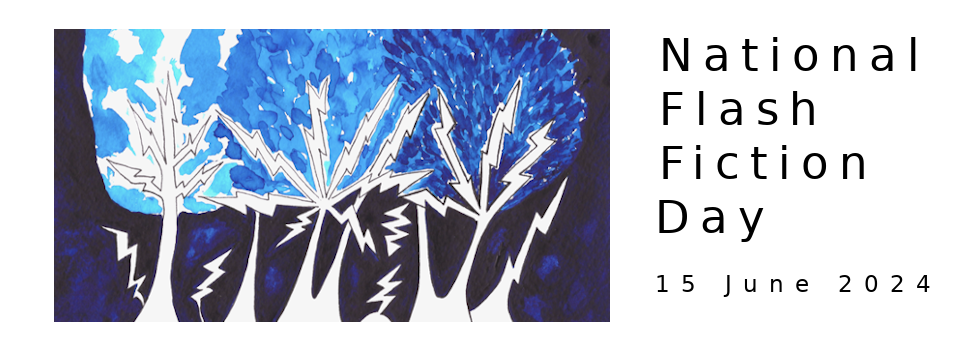Welcome to the sixth and last in our series of interviews with this year's National Flash Fiction Day Anthology editors and Microfiction Competition judges! Submissions for the Anthology and Microfiction Competition are open from 1 December 2021 to 15 February 2022.
This week, Diane Simmons chats with Joanna Campbell, one of this year's judges for the 2022 NFFD Microfiction Competition, about favourite flash, breakfast cereal, and her upcoming novel, as well as her tips for writing a great microfiction....

Diane: If you could be the writer of any flash fiction ever written, which one would you choose?
Joanna: Probably Sticks by George Saunders. I like the brackets he placed around the story, beginning on Thanksgiving Day and ending with garbage day. Most of all, I love its perfect rhythm.
Diane: You are the author of the short story collection When Planets Slip Their Tracks (Ink Tears) and a novel Tying Down the Lion (Brick Lane Publishing). Your second novel is due to be published in 2022 – could you tell us a little about it?
Joanna: It is called Instructions for the Working Day and will be published by Fairlight Books. It is about a troubled young man called Neil Fischer who becomes the owner of an East German village, which has been abandoned and left to rot throughout the years since reunification, then sold at auction. Neil plans to bring it back to life, but encounters an unsettling reception from the villagers. The renovation project is fraught with setbacks and surreal encounters. These invoke dark memories of his troubled upbringing and the guilt haunting him since the death of a school friend. While Neil struggles with his past, he fails to notice the unsettling atmosphere and escalating danger. In the meantime, Silke, one of the villagers, is aiming to return to her studies in Berlin, interrupted over thirty years ago during the Cold War when she attempted to escape.
Diane: Can you remember the first time you heard the term ‘flash fiction’ or the first flash fiction you remember reading and admiring?
Joanna: Although it wasn’t termed flash fiction at the time, the first I admired was Chapter V from Ernest Hemingway’s In Our Time. It is a tiny chapter or a vignette; very short, spare and complete. I still know it by heart and it never fails to move me.
Diane: You have always been a big supporter of National Flash Fiction Day and have flash fictions in six of our anthologies, two of which were Highly Commended micro fictions. Do you have any advice on how to write a successful micro?
Joanna: I think it’s best to write your micro without being distracted by the word count. Then you can make sure you write freely enough to capture the essence of your story. Afterwards you can edit ferociously until you are left with its raw, beating heart.
Diane: Do you read when you’re eating? If not, would you if you could get away with it?
Joanna: Definitely! Eating and reading are a good combination. Usually I settle for a bowl of bone-dry, crunchy cereal, because I’m quite spartan and it lasts a long time.
Joanna Campbell is a full-time writer from the Cotswolds. Her short stories have won first place in the 2011 Exeter Writers competition, the 2013 Bath Short Story Award Local Prize, the 2015 London Short Story Prize, the 2018 Magic Oxygen Literary Prize and the 2018 Retreat West Short Story Prize. Joanna’s flash fiction won second place in the 2017 Bridport Prize, for which her short stories have been shortlisted many times. Her novella-in-flash, A Safer Way to Fall, was a runner-up in the inaugural Bath Flash Fiction Award and published in How To Make A Window Snake (Ad Hoc Fiction). Her short story collection, When Planets Slip Their Tracks, was published in 2016 (Ink Tears). It was shortlisted for the Rubery International Book Award and longlisted for the Edge Hill University Story Prize. Her novel, Tying Down The Lion, was published in 2015 (Brick Lane Publishing). Her next novel, Instructions for the Working Day, will be published in 2022 (Fairlight Books). She is on Twitter at @joannacampbell_.

